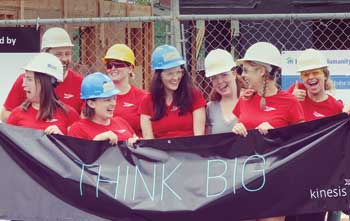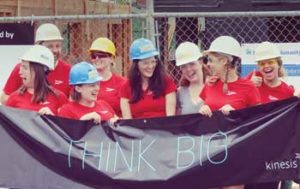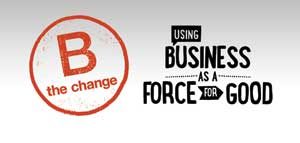
The following article originally appeared in EO’s award-winning Octane magazine. For more insightful articles from entrepreneurs, visit Octane magazine online.
 Dear fellow business owners,
Dear fellow business owners,
I know you work hard to make your company amazing. I also know you have a fierce desire to win, sprinting to your next goal. That’s because I’m just like you. This intensity is what makes us successful entrepreneurs. But here’s a question to consider: If you want to win, exactly what game are you playing, and how do you really know when you’ve won?
I know you work hard to make your company amazing. I also know you have a fierce desire to win, sprinting to your next goal. That’s because I’m just like you. This intensity is what makes us successful entrepreneurs. But here’s a question to consider: If you want to win, exactly what game are you playing, and how do you really know when you’ve won?
For many of us, the answer is simple: Winning means bringing more money to shareholders. But this is a fundamentally flawed approach. History has shown us that the “shareholder value theory” fails even on its single rule of “make more money.” Jack Welch, former CEO of General Electric (GE), who seemingly “won” at the shareholder value game, disparages this approach. In a 2009 interview with The Financial Times, he said, “On the face of it, shareholder value is the dumbest idea in the world.”
As a fellow CEO and EO member, I challenge you to play an entirely different game; one where we redefine what winning means. This new game is one where we drive our companies to serve customers, employees and communities … not just to increase revenue for shareholders.
In Leaders Eat Last, author Simon Sinek shows us that playing the one-dimensional “profit game” benefits nobody (owners included). Case in point: In the past 30 years, GE has prioritized shareholders, whereas Costco has prioritized employees and customers. As a result, Costco has greatly outperformed GE in the long run.
 Costco pays its workers’ wages well above industry standards and provides health insurance, vacation time and a matched 401(k). This pays off with a shockingly low rate of employee turnover (17% overall) and one of the lowest shrinkage (employee theft) figures in the industry. Costco’s loyal workforce returns high productivity, good customer service and strong profits. Costco’s founder and former CEO, Jim Sinegal, says, “When employees are happy, they are your best ambassadors.”
Costco pays its workers’ wages well above industry standards and provides health insurance, vacation time and a matched 401(k). This pays off with a shockingly low rate of employee turnover (17% overall) and one of the lowest shrinkage (employee theft) figures in the industry. Costco’s loyal workforce returns high productivity, good customer service and strong profits. Costco’s founder and former CEO, Jim Sinegal, says, “When employees are happy, they are your best ambassadors.”
There is a powerful way to begin playing this new game—become a B Corp. I speak from experience since my company, Kinesis, just joined this growing community of change-makers. From our inception in 2000, Kinesis has focused on being a better business. And at our annual planning session in early 2015, we realized that while we are proud of what we’ve accomplished, it was time to raise our standards by becoming a certified B Corp. This move was right for the following reasons:
- We want to “practice what we preach” by going through a rigorous, third-party certification of our commitment to social and environmental performance, accountability and transparency
- This certification aligns closely with our core values and puts us in a growing community of like-minded companies, including Patagonia, Etsy, Warby Parker, Ben & Jerry’s and many others
- Kinesis strives to provide meaningful work for every person who works here, as well as be a company that our clients feel good about hiring
- The B Corp assessment system provides ongoing data points and measurements of our progress (examples of measurements for context)
We found the process of becoming a B Corp to be very motivating to our company. The assessment process allowed us to take stock of the areas where we wanted to improve our impact. As a result, we revised our employee guidelines, streamlined our recycling process, added benefits for our team and increased our involvement in our community.
So, fellow entrepreneurs and EO members, I invite you to join us in this new game that doesn’t play to win at all costs, but instead focuses on being a company that is the best for your employees, customers, communities and the environment.
Kind regards,
Shawn
P.S. Our overall score is an 85 on the B Impact Score. In the spirit of friendly competition, I will be the first to congratulate you if you can beat us. Game on!
Shawn Busse is an EO Portland member and the CEO of Kinesis, a marketing and business consultancy helping B2B service-centric companies achieve growth from the inside out.
Categories: Best Practices Company Culture Legacy Make a Mark
